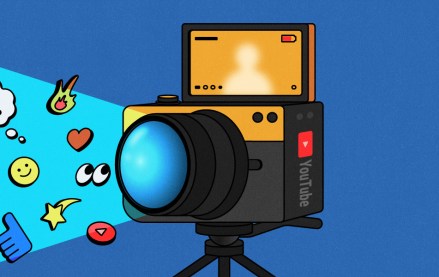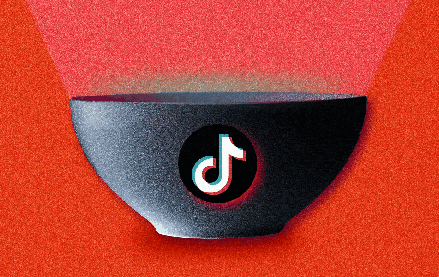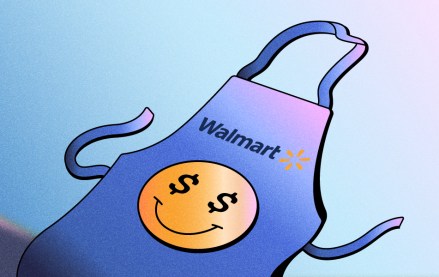Advertisers are coming back into esports — but with caution

After a difficult 2023, brand sponsorships are trending upward in esports in 2024 — but in a more experimental manner than the blind trust of past years.
The cold of esports winter is ongoing, but the weather has been feeling balmier in the first month of 2024. Brands such as Kia are re-entering the space by sponsoring both teams and leagues, and the Overwatch League, which died an ignominious death last year, is returning in the form of ESL/FACEIT Group’s Overwatch Champions Series.
But brands are getting smarter about esports, too, and spending less blindly than some did during the hype-infused FOMO days of 2018 and 2019. It’s become clear that the ROI of esports sponsorships is far behind that of traditional sports partnerships, and marketers are no longer willing to simply copy and paste their sports marketing budgets over to esports. Furthermore, esports companies remain reliant on brand partnership revenue, forcing them to cut deals with brands in order to stay afloat.
“Brands know they have power now, and that these teams need revenue from the brand side — it’s where the majority of their revenue comes from,” said Ryan Dow, head of gaming and esports in the Americas for the agency Sportfive. “So they have power; it will make negotiations a little bit harder for teams.”
Here’s a breakdown of the current state of brand partnerships in esports.
The key numbers
- Esports is a growing industry, but it still represents a small niche within the broader gaming community. In 2023, there were 31.6 million esports viewers, according to Insider Intelligence. On the other hand, there are well over 3 billion gamers worldwide. “Esports is a $2 billion industry,” Dow said, “but gaming is a $180 billion industry.”
- Esports companies have announced a slew of both new brand partnerships and renewals in January 2024, with Riot Games announcing sponsorships with brands such as Kia, HyperX, KitKat and Omen. But in spite of this sponsor activity, esports and gaming companies are preparing for austerity in 2024. Over the past week, Riot laid off over 500 staff, with Activision Blizzard following up a few days later with a cut of nearly 2,000.
- In spite of the pullback in brand partnership activity last year, advertising spend in esports continues to ramp up more broadly, buoyed by brands’ rising interest in gaming as a category in general. Insider Intelligence estimates that esports ad revenues grew by 10 percent in 2023, to a total of $264.3 million.
Redefining the relationship
Part of getting smarter means admitting you don’t know as much as you thought, which is more or less what is happening to the more informed brands in esports at the moment. For years, advertisers viewed esports as an analog to traditional sports, replete with the multi-million-dollar contracts and jersey logo slaps long enjoyed by sports teams and their brand partners. In 2024, brands have learned that esports is an entirely separate beast, with its own viewership behaviors and audience proclivities, and they have returned to a more experimental approach to their esports sponsorships as a result.
“In 2023, I think a lot of companies were impacted by the macroeconomic uncertainty of the last two years. This especially applies to non-endemic brands pulling back esports investments that can be seen as experimental, rather than tried and true, as marketing budgets were constrained and reduced,” said Victor Goossens, co-CEO of the esports organization Team Liquid. “But we’re seeing things pick up again, maybe with a more experimental, explorative approach to prove the value first. They can be shorter term, or smaller, just to see how esports could work within a brand’s marketing strategy.”
Benefits of consolidation
In past years, the sheer variety of esports companies and opportunities to engage with the esports audience left some marketers’ heads spinning as they attempted to enter the space. But in 2024, consolidation is the name of the game — which could make esports a more accessible playing ground for brands. As esports companies such as ESL/FACEIT Group and Blast look to license the rights to multiple esports simultaneously, this bundling could allow their partners to more easily reach multiple games’ communities while engaging with a single sales team.
“Our commercial capabilities are unmatched in the industry, in terms of our ability to create long-term partnerships with brands like Intel and Monster and DHL, that I think have activated in a value-added way to the community,” said ESL/FACEIT Group co-CEO Craig Levine. “So I think we’ve done a good job with these partnerships, creating renewals and community acceptance and ultimately support for it. I think that’s valuable for the consumers.”
Lingering perceptions
If esports companies want to convince brands to treat the space as less of an experiment and more of a default marketing channel, the industry might need to correct some lingering perceptions about its relative lack of diversity. Some brands still view esports as an edgier, less brand-safe space, a perception that hasn’t been helped by the antics of the wild-partying influencer-leaders of esports orgs such as FaZe Clan. Esports organizations have taken note of brands’ wariness around these issues, and they’re taking steps to correct those perceptions in 2024.
“They’re seeing the makeup of a lot of orgs and a lot of teams, and they’re thinking, ‘we want to stand for something and be more distinct,’” said Max Bass, director of emerging connections at the agency Gale. “That is one of the reasons why you see a lot of orgs investing in more women in gaming initiatives.”
More in Marketing

Digiday+ Research deep dive: Brand marketers grow their YouTube spending while agency marketers cut back
When it comes to social media marketing, YouTube doesn’t always get as much attention as its Meta, TikTok and X counterparts. But brands are actually increasing their marketing spend on the platform. It turns out it’s a different story for agencies, though.

Amazon, Apple, Oracle rumored to be potential TikTok buyers if ByteDance is forced to sell
The rumor mill is in full force despite ByteDance stating it would rather shut down the app in the U.S. than sell it.

Walmart and Roblox are teaming up to make virtual e-commerce a reality
Roblox first teased the launch of e-commerce during November’s Roblox Investor Day, and the Walmart experience is a pilot test that will run through the month of May. During the pilot test, Roblox will not receive a cut of item sales, with all revenues going directly to Walmart.








